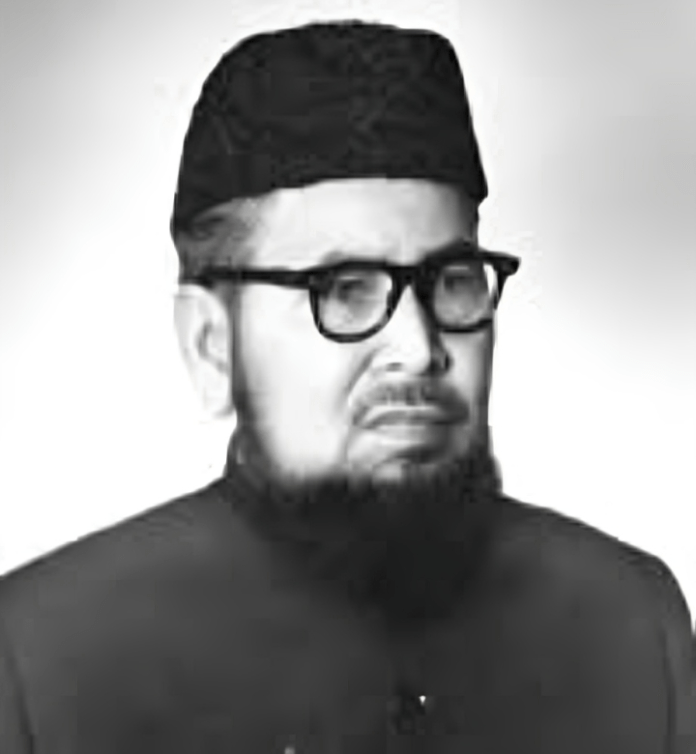Maulvi Tamizuddin was born in 1889 in the village of Farid Pur. He got his early education at his home. For higher education he travelled to Bihar, Calcutta and then returned to Farid Pur t start his professional career as a lawyer. He passed his entrance exam in 1906. He took admission at Victoria College in Bihar and passed his exams in arts. Then he got education at Scottish Churches College and Presidency College Calcutta. After passing Honors in English in 1911, he took admission for M.A in Presidency College and for Law at Rippon College, simultaneously. He passed both the exams in 1913 and 1914 respectively.
Having close observation of the rural life and its problems, Maulvi Tamizuddin stepped in the field of politics when anti-Bengal Partition Movement was on its peak. He was greatly inspired by the speeches made by Ambeka Charan Majamdar, President of the Indian National Congress who appealed to the students of Bengal to boycott the British products and join the movement in 1905. He responded to his call positively. In 1906, before taking the entrance exams, he exhibited his speaking power and made fiery speeches against the partition of Bengal. However, he realized belatedly that Muslims’ emancipation was tightly knitted with the partition of Bengal.
In Farid Pur Bar he was an ardent supporter of Hindu-Muslim unity. So he joined Indian National Congress in 1921. During Khilafat Movement, he took part in boycotting the British Courts and went to the extent of getting his brother out of a British school. Maulvi Tamizuddin was arrested for his political activities and sent to the Farid Pur jail and then shifted to Central Jail Dhaka where he began reading and understanding Holy Quran. In 1923, he was released from the jail. These sufferings had great impact on the personality of Maulvi Tamizuddin. Later, when British government wanted to give him the title of ‘Khan Bahadur’, he simply refused to accept it. Consequently his practice was banned and due to the financial constraints, he moved to Calcutta along with his family. There he earned his livelihood as an ordinary cloth merchant.
He was deeply concerned at Shuddhi Movement, which had started to convert Muslims to Hinduism. He decided to sever his links with Congress. Earlier, he contested elections from Farid Pur for the Municipal seat. At that time he was secretary of the Congress Party for Farid Pur but Hindus elected a Hindu leader against him. It exposed the Hindus’ bias against the Muslim community. He left Congress in 1926. In 1937 elections, he contested on the Muslim League ticket and convincingly defeated the Congress candidate Hamayun Kabir. From 1937 to 1947, he served as Minister of Health, Agriculture, Industries, and Education in Bengal.
When Pakistan came into being, he was elected as Vice President of the Constituent Assembly of the Pakistan. After the death of the Quaid in 1948, he became the President of the Constituent Assembly of Pakistan. Unfortunately in 1954, Governor General Ghulam Muhammad dissolved the Constituent Assembly. Maulvi Tameezuddin challenged this decision in the Sind High Court. Sind High Court decided the case in his favor. But when Federal Government appealed against the decision in the apex court, Chief Justice Munir declared the verdict of Sind High Court null and void and invoked the notorious and highly controversial ‘doctrine of necessity’. This turned out to be the precedent for subsequent undemocratic actions whenever the army generals took over the reins of the country. The role of the judiciary also proved to be a confederate in the process of subverting the democratic systems.
In 1962, Maulvi Tamizuddin contested elections from Farid Pur for the National Assembly seat under the new constitution and won the elections. The same year, he was elected Speaker of the National Assembly. He also acted as President in the absence of the president. He visited many countries as head of the various commissions of the legislators and advocated the cause of Pakistan as a fledgling state.
He passed away on 19th August 1963 at CMH Dhaka. His death was mourned throughout the country for his bold and historical initiative to lodge an appeal against the autocratic decision of the Governor General Ch. Ghulam Muhammad. Owing to this act he is aptly known as the flag bearer of the democratic norms.
This article was last updated on Friday, Jan 04, 2008






